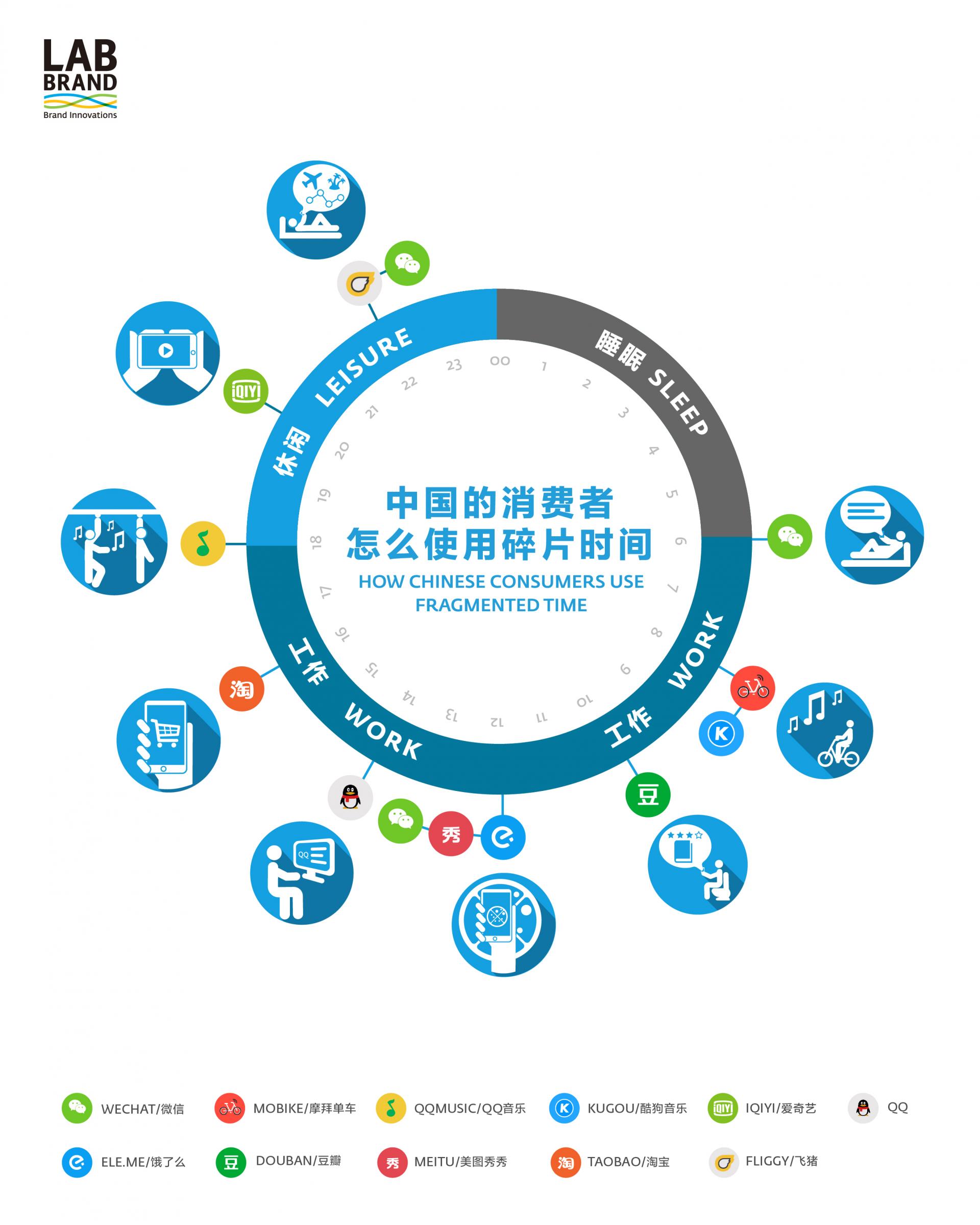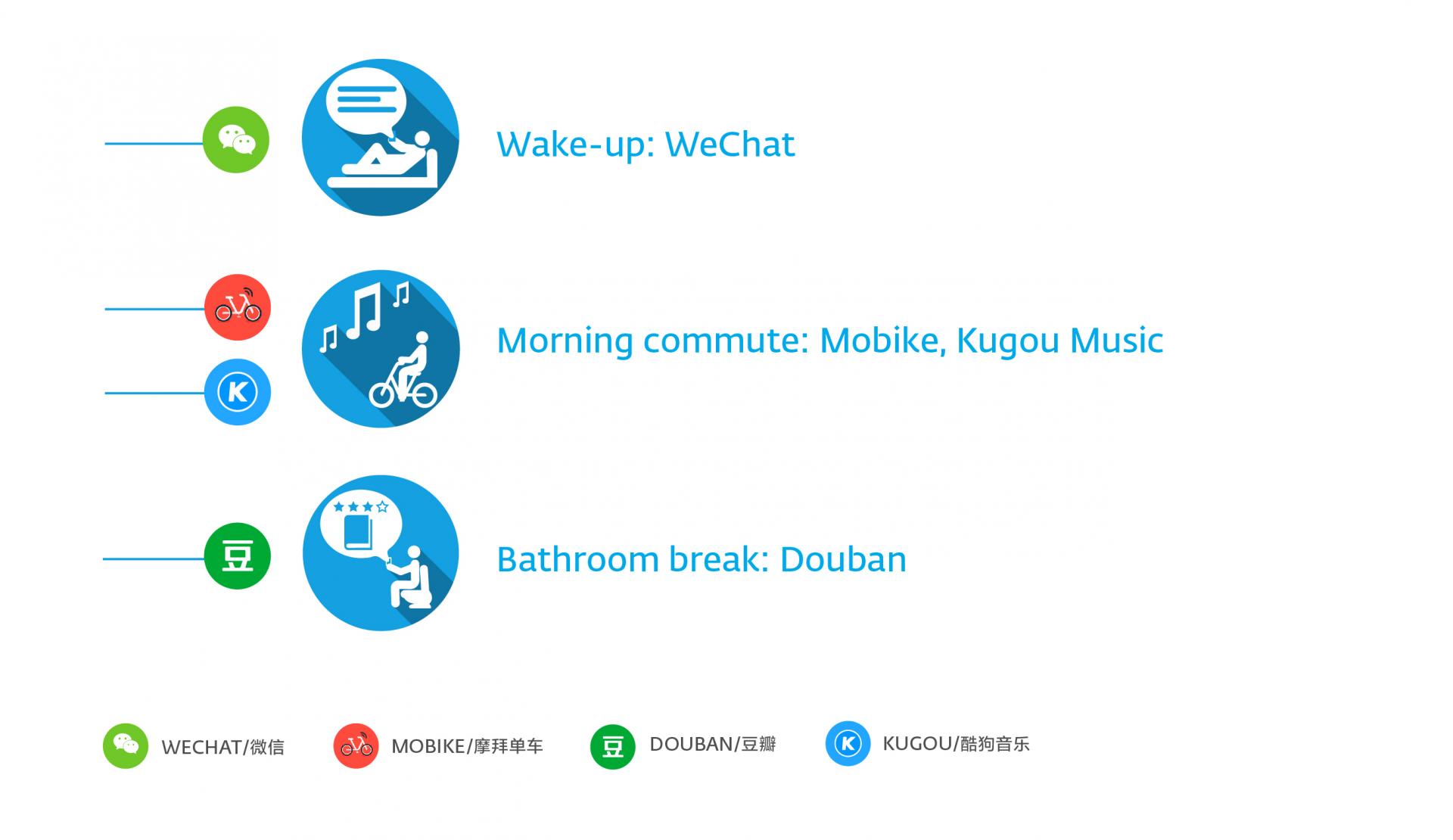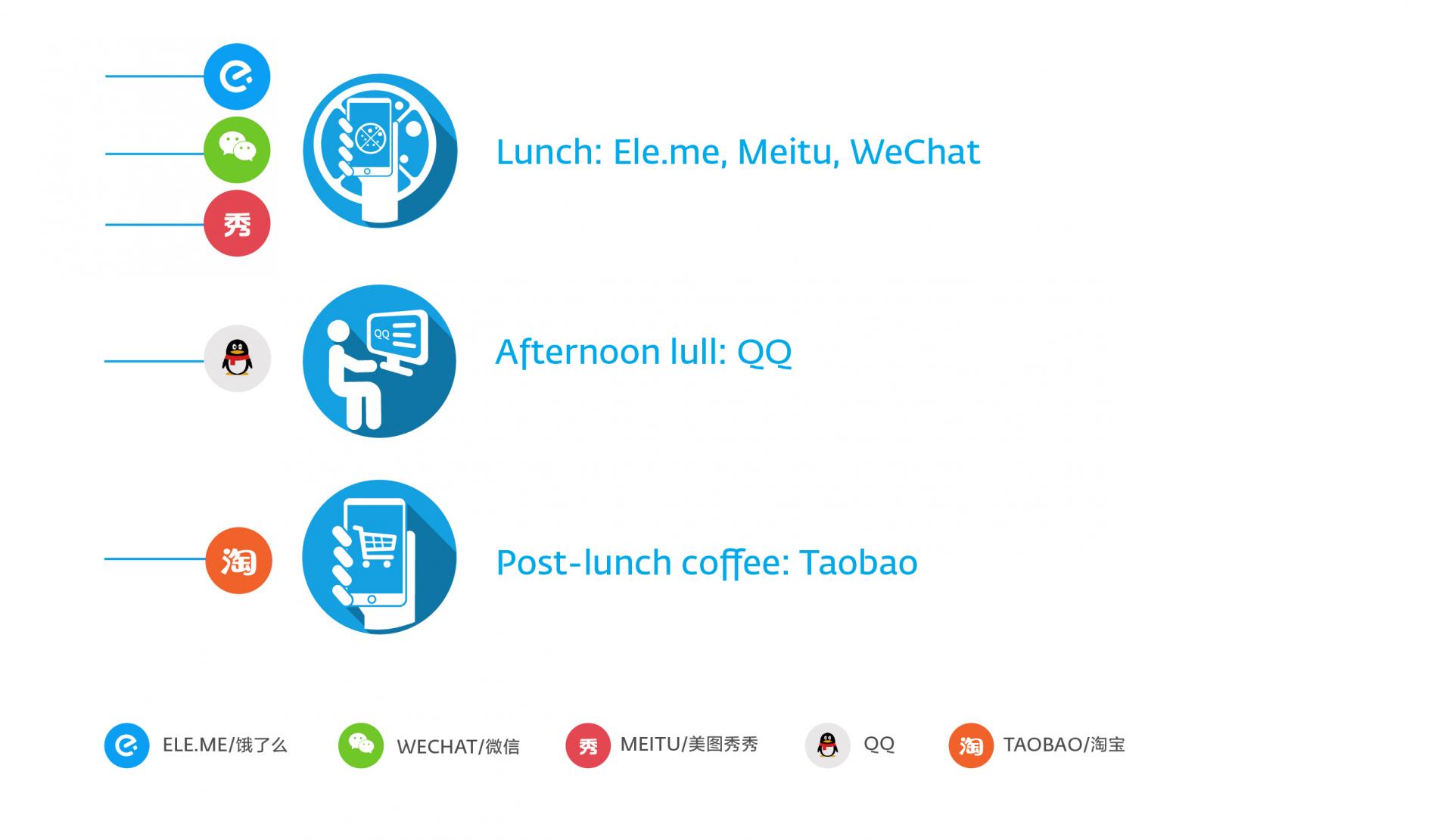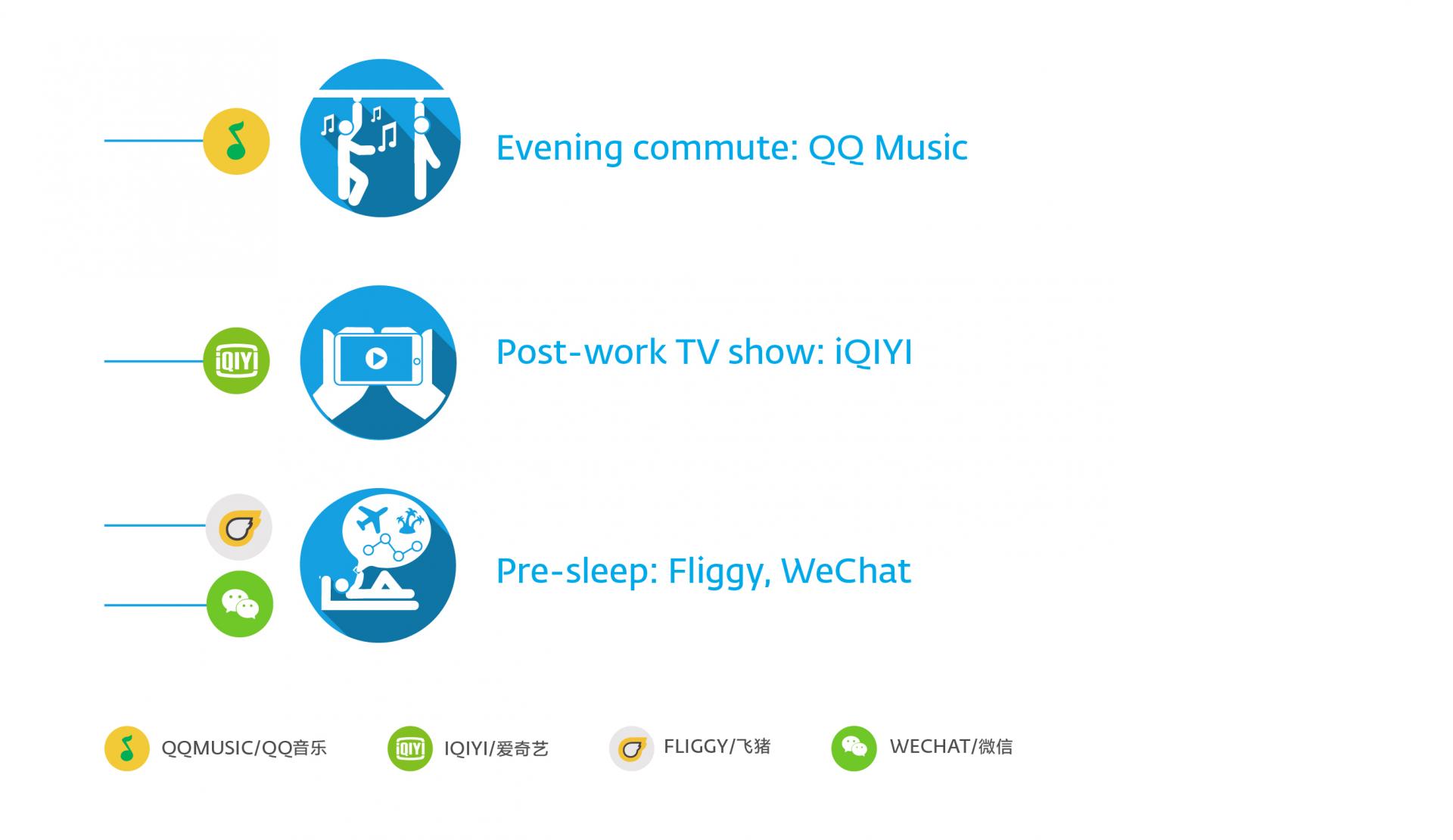

Fragmented Time in China is a unique phenomenon defined by consumers as the numerous instances during the day when there’s free time to spare – whether waiting for someone at lunch, commuting on the metro in the morning, or winding down at night before sleep.
Western users will likely be familiar with the concept. You might think of your favorite Meme account that you scroll through before bed, a classic “time-waster”. But in China, these free moments during the day take on a totally different meaning.

“Fragmented time is a global phenomenon that describes how people use their digital devices during free moments across the day. This mobile dependence in many other parts of the world simply equates to excessive notifications and communications and not service delivery; thus we see a growing trend towards a digital detox and a desire to disconnect.
However in China, where the very fabric and operations of daily life now depend on mobile and this is ubiquitous throughout generations, any so-called dependence on mobile does not carry negative connotations. In a daily life where you square up electricity bills via WeChat and pay in even the smallest shops using Alipay, the universalism of mobile brings huge convenience and an atmosphere of constant learning to maximize time and output. Fragmented time in China is seen as an endless opportunity.”
– Chris Wallbridge, Business Director of Market Research at Labbrand Shanghai

Wake up: The first thing a consumer in China does when she wakes is check her WeChat – a native Chinese app that first began as a hybrid of Facebook and WhatsApp back in 2011, which has since grown to 756 million Monthly Active Users (MAU, January 2017). It’s a quick scan on the social happenings of the day ahead. She sees a cute penguin video in a group chat and sends it out to her friends for a jump start to the day. She spends a few minutes scanning WeChat Moments, which shows a feed of albums and updates from her friends.
Morning commute: To get her muscles moving on a Wednesday morning, she forgoes the Metro in favor of a mobile commute, all done on-the-go. She wraps a scarf around her, pulls on touch-screen gloves, and scans the QR code of a Mobike sitting outside her apartment. For the 10-minute ride in she puts on her favorite K-pop playlist on Kugou.
Bathroom break: When it’s time to freshen up, why waste a few free minutes? Like many consumers in China, she wants to fully utilize every minute of her day to fulfill the needs of work and pl

Lunch: She orders lunch directly on her phone – our Chinese consumer prefers Eleme over Dianping or Biadu Waimai because her favorite noodles shop is on it. She orders ahead of time and back to work.
Once it’s arrived, she gathers around the lunch table with her friends and takes pictures using Meitu Xiuxiu for the perfect food selfie. ‘Snap now eat later’ is a major trend in China, and great attention is paid to aesthetic appreciation of food: A well-taken food selfie should be able to bring out the flavor and smell of the dish. Yellow Filter (铬黄滤镜) is the most popular for food selfies, brightening up the photo, improving food freshness and making followers hungry. Her and her friends waste no time sharing it on WeChat Moments.
Afternoon lull: In the post-lunch lull, our consumer goes online and chats with colleagues and friends. QQ messenger is still the preferred app for instant messaging in China and anyone who’s anyone has an account. It’s also a great way to share huge files – there’s practically no limit. She sends her friend the movie file for 长城,Zhang Yimou’s most recent.
Post-lunch coffee: Once 16:00 hits its time for a bubble tea from one of the local shops around the corner. She sends her colleague a message on QQ and soon enough they have their half/half orders in. While they wait, they browse Taobao and Tmall, checking out favorite brands like Burberry and New Balance – there are endless things to buy and amazing deals to find.

Evening commute: Finally, work is finished and it’s time to head home. She says goodbye and pops on QQ music for the commute, playing from her recently downloaded as she walks to the subway and takes a seat – since it’s the tail end of the CNY holiday, not so jam-packed. Still, the most proper place to look is at the phone, and besides it would be boring if there’s nothing to. She goes to the 个性化中心 (Personalization Center) and starts curating more of her favorite artists.
Post work TV: When she gets home there’s a chance to relax and catch up on her favorite Korean Drama. There’s still another 30 minutes before dinnertime, so she pulls up IQIYI on her phone and streams a quick episode of 鬼怪 before it’s time to start dinner.
Pre-sleep: At the end of a long day, it’s nice to sit in bed and dream up some amazing travel destinations. Our Chinese consumer goes on Alitrip to look up the best deals for flights and hotels. She finds an amazing deal to Seoul – around 1200 RMB – and books it using Alipay; not hesitating for a second to post the tickets on her Wechat Moments. Seoul, here we come!
In the context of the largest mobile-first market, China’s digital landscape provides a glimpse of how digital integration might proliferate globally, transitioning from an interference with daily life to an extension of the user’s toolkit on mobile and connected devices. Chinese consumers, spending an average of 3.9 hours daily on their phones, have witnessed the emergence of numerous apps specifically designed to enhance the daily routine and make use of fragmented time in China’s digital realm.
For brands in China, this trend manifests itself in 3 different ways:
A Labbrand Group Company © 2005-2024 Labbrand All rights reserved
沪ICP备17001253号-3* Will be used in accordance with our Privacy Policy
To improve your experience, we use cookies to provide social media features, offer you content that targets your particular interests, and analyse the performance of our advertising campaigns. By clicking on “Accept” you consent to all cookies. You also have the option to click “Reject” to limit the use of certain types of cookies. Please be aware that rejecting cookies may affect your website browsing experience and limit the use of some personalised features.